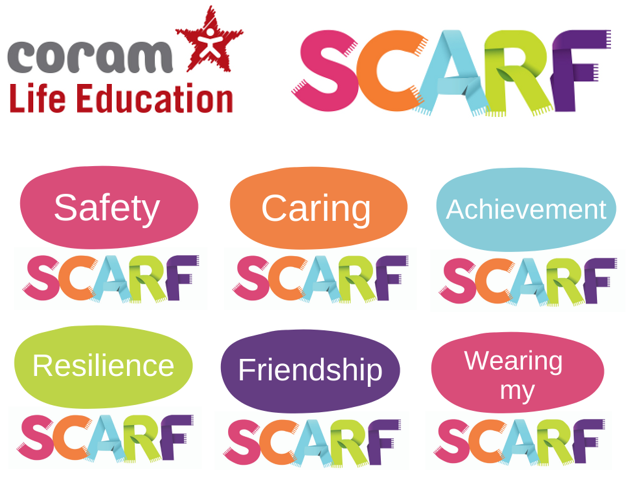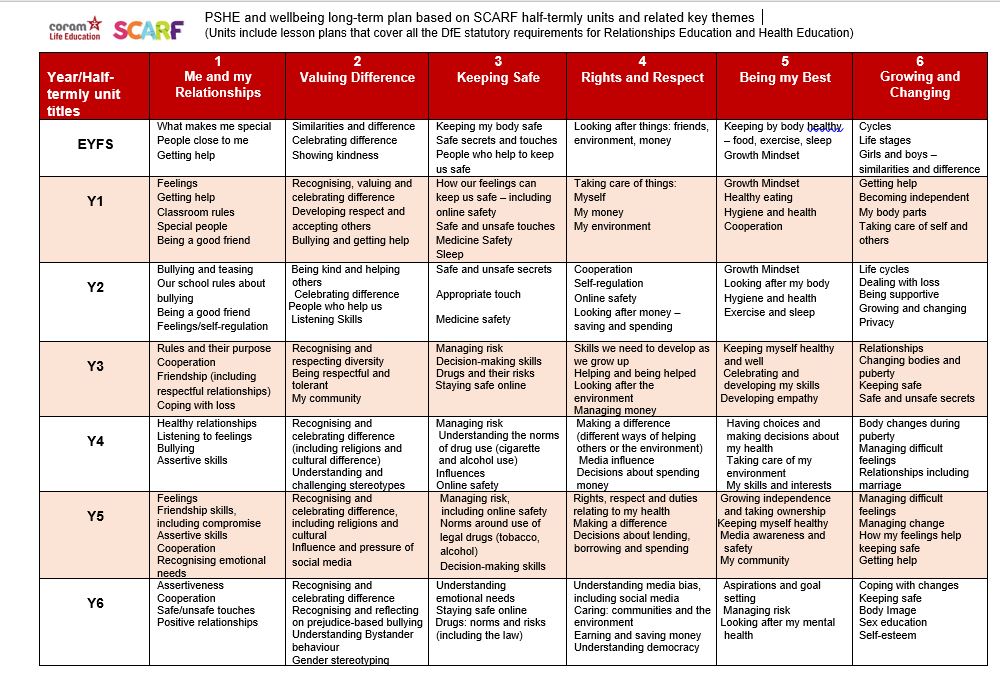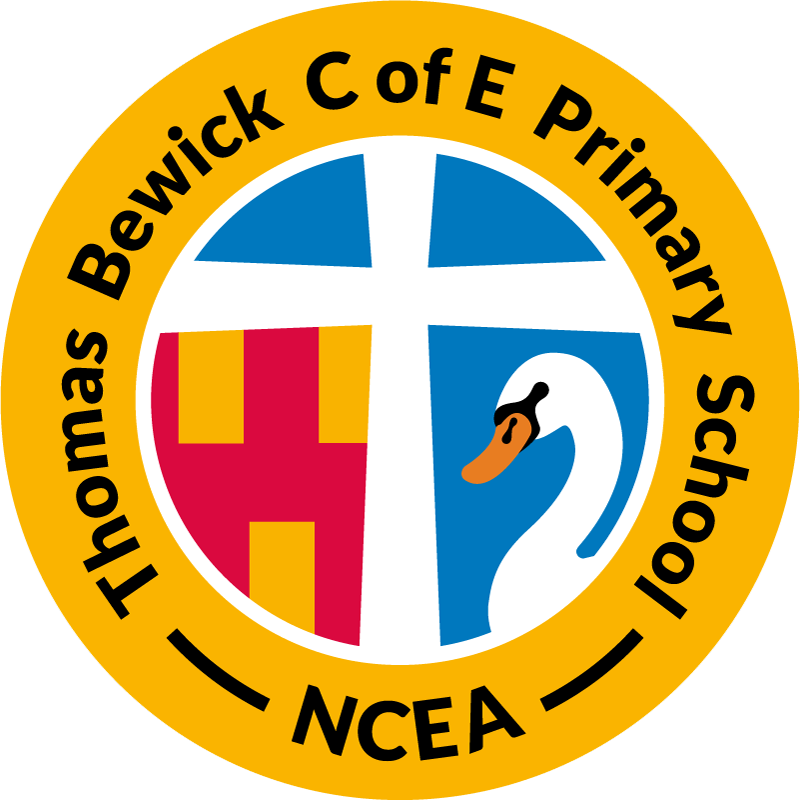

At Thomas Bewick, the personal development of our children is of prime importance. By the end of the children’s time at Thomas Bewick, we want them to be well-rounded citizens of society with the skills to progress in life and make right choices. As a school, we approach every aspect of school life with personal development in mind. We hold awareness and special days to value differences of others, use Thrive to promote emotional intelligence and good well-being and the children are given opportunities to be part of a wider community of culture.
As a school we teach PSHE/RSE from the national curriculum. We also draw teaching, learning and activities from the SCARF programme. SCARF supports children’s spiritual, moral, social, cultural and emotional development, fostering a sense of respect for themselves and others; it promotes health and wellbeing across the school community within a robust PSHE framework. Within this context, it contributes significantly to British Values in their broadest sense both explicitly and implicitly.
RSE
At Thomas Bewick C of E Primary, RSE (Relationships & Sex Education) is taught within the SCARF programme and links are provided to NSPCC learning. We teach the fundamental building blocks and characteristics of positive relationships, with particular reference to friendships, family relationships, and relationships with other peers and adults.
All learning is in accordance with the statutory framework set out in September 2020 to develop healthy relationships, including how to stay safe online and understand how to live a healthy lifestyle. We ensure learning is suited to the age group taught and knowledge is built on as children progress through the school.

*Please note Sex Education is only taught to those with parental permission
British Values
At Thomas Bewick C of E Primary School, we prepare children for life in modern Britain effectively, developing their understanding of the fundamental British Values of democracy, the rule of law, individual liberty, mutual respect and tolerance of those of different faiths and beliefs.
Due to how engrained British Values are into our Christian vision, ethos and values, we do not expect the children to be able to list all of the British Values from memory. However, we do expect them to demonstrate the views and values that show they are on their journey to becoming safe, ready and respectful adults who make a positive difference to their community and let their light shine at every opportunity.
Therefore, at Thomas Bewick C of E Primary School, we ensure we have a systematic and progressive approach to the teaching of British Values whilst also reinforcing these values through a wide range of opportunities and experiences in school.
Individual lessons which relate directly to the British Values themes of:
- Democracy
- The Rule of Law
- Individual Liberty
- Mutual Respect
- Tolerance of those with different faiths and beliefs
are as follows, although there are further links across a range of the SCARF lessons. Teaching and learning about the British Values is fully integrated into our PSHE curriculum (SCARF), through age-appropriate content across the SCARF spiral curriculum.
| Lesson | Link to British Values |
| Y1 It’s not fair! Y2 An act of kindness | Tolerance Mutual Respect |
| Y1 Same or Different? Y2 What makes us who we are? | Tolerance Mutual Respect |
| Y1 Why we have classroom rules Y2 Our ideal classroom 1 | Democracy Rule of Law Mutual Respect |
| Y1 Taking care of something Y2 Getting on with others | Tolerance Mutual Respect |
| Y1 Who are our special people? Y1 Our special people balloons Y2 When someone is feeling left out | Individual Liberty Tolerance |
| Y5 Independence and Responsibility | Individual Liberty |
| Y4 Different feelings Y5 How good a friend are you? | Tolerance Mutual Respect |
| Y3 Respect and challenge Y4 What makes me, Me! Y5 Kind conversations Y5 The land of the red people Y6 Respecting differences | Tolerance Mutual Respect Individual Liberty |
| Y3 Let’s celebrate our differences! Y4 What would I do? Y4 Can you sort it? Y5 Happy being me! Y6 Okay to be different | ToleranceMutual Respect |
| Y3 As a rule Y4 How do we make a difference? | Democracy Rule of Law |
| Y4 The people we share our world with | Tolerance Mutual Respect |
| Y6 Democracy in Britain 1 and 2 | Democracy Rule of Law |
Further to the PSHE curriculum, we actively promote British Values in the following ways:
Democracy
- All children are encouraged to debate topics of interest, express their views and make a meaningful contribution to the running of the school on matters that directly involve children.
- The principle of democracy is explored in the curriculum as well as during collective worship. Children vote for the school House Captains and pupil voice.
- Our school behaviour policy involves rewards which the children have developed.
- Pupil voice suggestion boxes are used to support with making decisions.
Rule of Law
- Our school follows its behaviour policy, which is underpinned by the school’s Christian ethos, vision and values.
- School rules and expectations are clear, fair and regularly promoted.
- Children are always helped to distinguish right from wrong, in the classroom, during collective worship or in the playground.
- Children are encouraged to respect the law and enjoy visits from authorities such as the emergency services.
- The behaviour policy sets out a zero tolerance baseline for any form of aggression, abuse or violence, which extends to children, staff and parents and carers.
Individual Liberty
- Within school, children are actively encouraged and given the freedom to make choices, knowing that they are in a safe and supportive environment e.g. attending after school clubs.
- Children are supported to develop their self-knowledge, self-esteem and self-confidence.
- Children are encouraged to take responsibility for their behaviour and choices.
- Children are encouraged to know, understand and exercise their rights and personal freedoms and are advised on how to exercise these safely, for example through our online safety teaching and PSHE lessons.
- Vulnerable children are protected and stereotypes challenged. A strong anti-bullying culture is embedded in the school and any form of bullying is challenged and addressed. The school also operates a robust system of logging incidents.
- Children have key roles and responsibilities in school e.g. Year 6 play leaders, Year 4 buddies, Head Boy and Girl etc
- The school community benefits from visits from the NSPCC.
Mutual respect and Tolerance
- Respect is one of the core behaviour rules in our school. The children know and understand that it is expected that respect is shown to all members of our community.
- Children are helped to acquire an understanding of, and respect for, their own and other cultures and ways of life.
- Staff and children are encouraged to challenge prejudicial or discriminatory behaviour.
- Through PSHE and RE curriculums, children are encouraged to discuss and respect differences between people, such as differences of faith, ethnicity, disability, gender or sexuality and differences of family situations.
- We include celebratory and awareness days to support with the children’s understanding of differences such as Black History Month and Pride.
- Themes of Collective Worship are linked alongside the PSHE curriculum and the British Values.
Protected Characteristics
The national curriculum recognises how important it is for children to understand the world in which they live in and as a school we want this for them too. We want children to live alongside and show respect for a diverse range of people. A way in which our school ensures they are providing children with the knowledge and skills to do this, is through the teaching of protected characteristics.
It is extremely important for us here at Thomas Bewick, that our children grow to be respectful, ambitious and empathetic pupils who respect the world in which they live in. We expect our children, by the end of year 5 to know all of the 9 protected characteristics by name and understand what they mean.
The 9 protected characteristics are:
- Age
- Disability
- Gender reassignment
- Marriage and civil partnership
- Pregnancy and maternity
- Race
- Religion or belief
- Sex
- Sexual orientation
Please find information below to show where this is covered within the PSHE/RSE curriculum.

